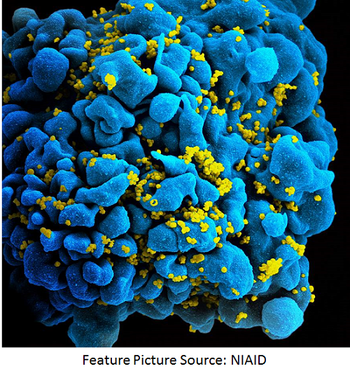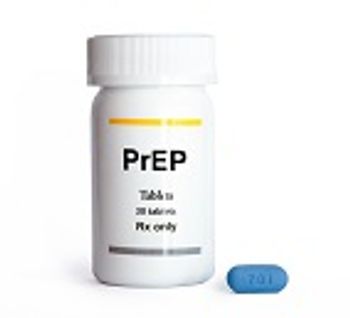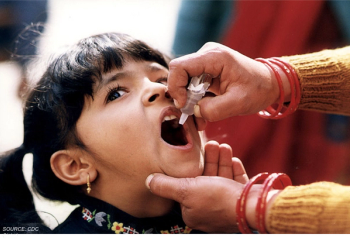
A new analysis of more than half a million knee replacements finds patient-specific factors and certain surgical decisions can make a difference in the rate of infections.

A new analysis of more than half a million knee replacements finds patient-specific factors and certain surgical decisions can make a difference in the rate of infections.

The growth of opioid addiction in the United States has led to a significant convergence between substance use disorders and infectious diseases. Physicians who specialize in the latter need to take note.

A new strategy that enforces a type of cell division in memory T cells could lead to longer-lasting immune protection in patients.

Physicians with higher than average antibiotic prescription rates tended to be more cautious after being shown how their prescribing habits compared with those of colleagues.

The American Academy of Pediatrics is giving its recommendation to the nasal spray form of the influenza vaccine for the 2019-2020 flu season, meaning parents will have 2 choices when getting their children vaccinated this fall.

A handful of major measles outbreaks have underscored the importance of childhood vaccination, but experts say other diseases, chiefly pertussis, could also come back in force.

A study reports that estimates of influenza epidemic outcomes may be improved by focusing on behavioral discrepancies in different demographics.

Clinicians who avoid writing antibiotics prescriptions for elderly patients with urinary tract infections may be putting those patients at risk for bloodstream infections.

Hospitals that try to discourage the use of fluoroquinolones succeed at lowering prescriptions for patients admitted to the hospital, but many of those patients still leave with prescriptions for fluoroquinolones at discharge.

Influenza vaccines may be less effective in older adults due to a lack of antibody diversity, a new study suggests.

Workers in a variety of industries—not just health care—face significant risk of infection at work. A new study finds a number of new risks are emerging, adding to the need for vigilance.

Ibuprofen succeeded in fighting S aureus in a laboratory setting, although it’s not clear whether the same effect would hold true in patients with systemic infections.

Should patients be screened for emerging infectious diseases based on travel history? Recent studies cast doubt.

New findings show when A3A is overexpressed, latent HIV is less likely to reactivate; the opposite is also true.

Patients who believe themselves to be at a high risk of contracting HIV are more likely to accept pre-exposure prophylaxis (PrEP) than their peers. That’s one key finding from a new study that looked at how individual factors affect PrEP uptake.

In theory, investigators now have the tools to edit a patient’s genes to fight HIV. However, there’s a big difference between potential and reality.

Giving an influenza vaccine to hospitalized patients prior to discharge might also be the only opportunity to vaccinate those patients.

Investigators wanted to know if using linezolid in place of ethambutol in the treatment of pulmonary TB might shorten treatment times. The results of a new study show the swap worked, but not as well as other therapies.

A new review shows transgender women face higher HIV rates than transgender men, but also finds a relative lack of data about transmen.

Investigators say a bacteriophage trial that was cut short due to the therapy’s slow effect on infected burns still yielded important insights.

A smartphone app could be the critical link between at-home HIV testing and rapid access to care for people whose tests come back positive.

New research suggests liver macrophages should not be considered an HIV reservoir, and thus should not be considered a target for HIV therapies.

The results of a new Dutch study suggest a rationing protocol does not diminish the effectiveness of the vaccine.

Freeze-drying vaccines enables health officials to get vaccines to remote areas, but until now, it has not been possible for the fragile polio vaccine.

People living with HIV should get a flu shot each year, according to experts.

New research finds it is safe to use gentamicin to treat bacteremia, provided it is used for a short term and only given once per day.

Polio could soon be completely eradicated, but public health officials have an intricate set of steps to ensure a lasting defeat.

New research confirms a link between initiation of antiretroviral therapy and an increase in herpes viral shedding; however, the results suggest the spike in shedding is only temporary.

Probiotic Bacillus found to eliminate colonies of S aureus in mouse models and was associated with a lack of S aureus in human samples.

Plenty of research has gone into the causes and progression of Alzheimer’s disease. Now a new effort aims to make the case that scientists have been looking in the wrong direction.